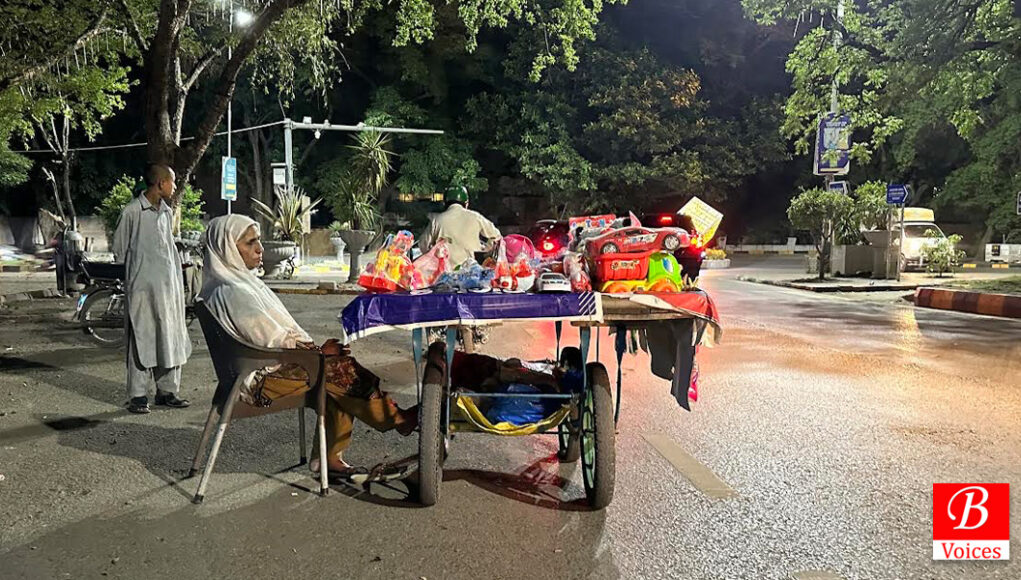 Saima Ali
Saima Ali
In the lively streets of Islamabad, Pakistan, the informal economy buzzes with life, offering a crucial support system for the city’s less fortunate. This sector, making up about 35% of Pakistan’s GDP, is a key part of the economy. Here, a group of resilient women stand out as street vendors. Despite the daily hurdles and chaos they face, these women push on, working hard to support their families. Their relentless effort and spirit not only help them make ends meet but also highlight the informal sector’s role in providing jobs and income to many. These women, amidst Islamabad’s vibrant streets, embody the strength and resolve found in the informal economy.
In Islamabad, over 500 street vendors dot the cityscape. Recent studies reveal fascinating facts about street vending’s economic impact: on average, a street vendor in Pakistan earns Rs 114,708 in revenue, with about 29% of this amount being pure profit. These figures don’t just show the financial importance of street vending; they also point to its positive effects on the formal market. Street vendors draw crowds, boosting nearby businesses and forging strong connections within the local economy. Understanding the significant benefits, it’s crucial to nurture these connections, supporting female street vendors and the broader business community in Islamabad for mutual growth and prosperity.
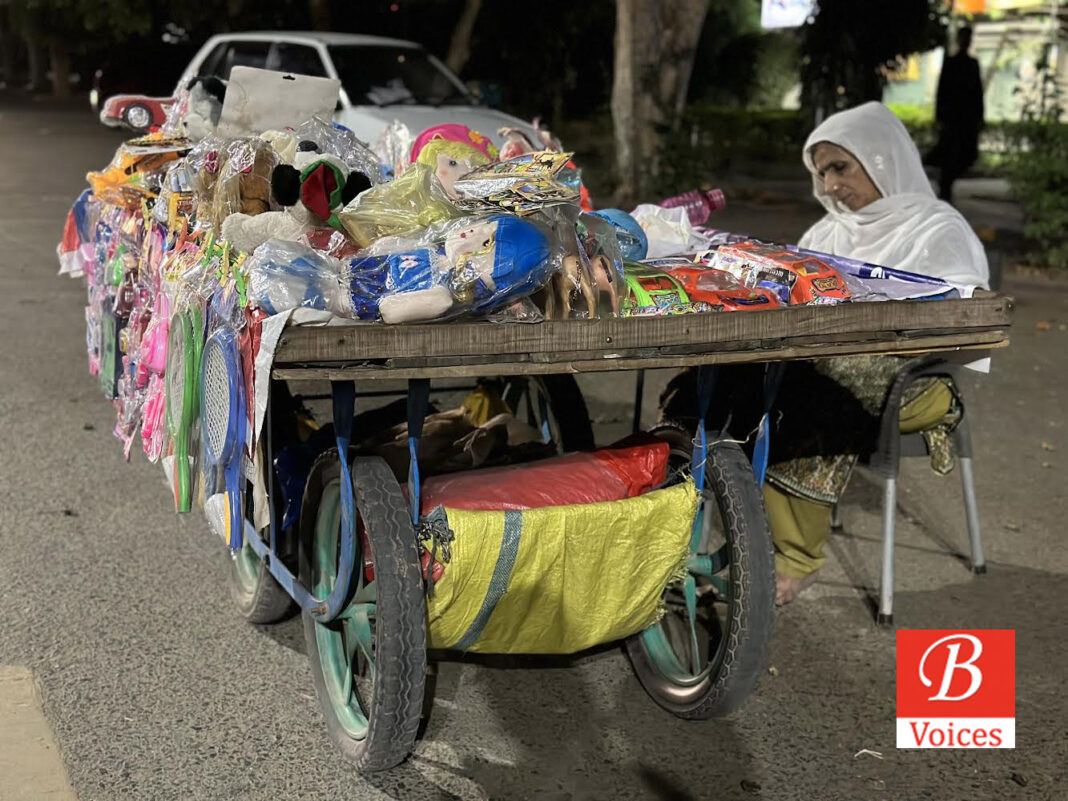
The current state of street vending in Islamabad, the capital city of Pakistan, is deeply distressing. Actions taken by the Capital Development Authority (CDA) to beautify the city and widen roads for the privileged class have resulted in the eradication of street vendors. The CDA’s actions may be driven by pressure from the elite, further marginalizing the poor and denying them the means to survive. Compounding the issue is the fact that female street vendors, who often commute from different areas of Rawalpindi to Islamabad, have to start their work late in the evening, after 7 PM. This not only puts them at greater risk but also highlights the insecurity they face as they strive to earn a living. It is crucial to address these disparities and create an environment that allows all members of society, regardless of their socioeconomic background, to thrive and find economic stability.
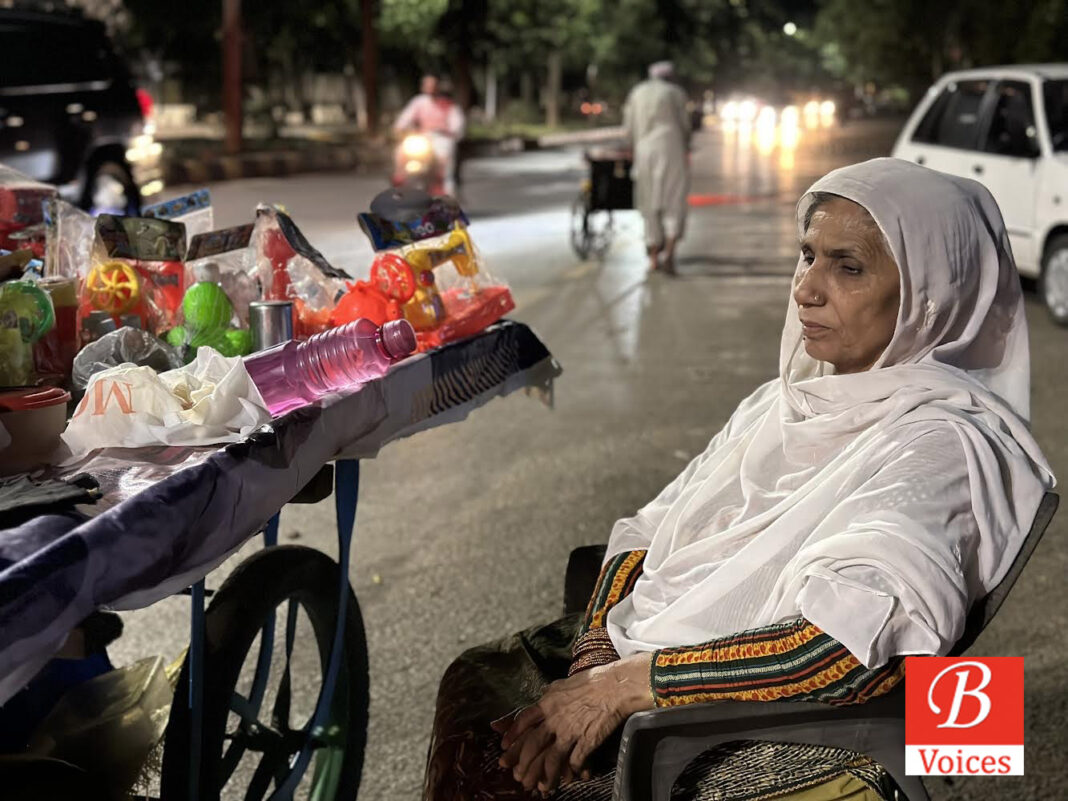
I recently had the opportunity to interview an inspiring old lady who has been working as a female street vendor in Islamabad for the past 26 years. Accompanied by her two daughters, Samina and Rubina, who are married and have brought their children to work with them, she strives to provide for their families while facing unique challenges. The lady explained that they chose to operate in the evening, starting at 7 PM, due to the scorching hot weather during the day, ensuring the safety and well-being of their children. She also mentioned the presence of the Capital Development Authority (CDA), which she believes is compelled to carry out its work by influential elites and higher management. Consequently, upon spotting the CDA officials, they quickly find ways to hide from them. This touching interview shed light on the resilience and determination of these women who are working against the odds to secure a livelihood for their families in difficult circumstances.
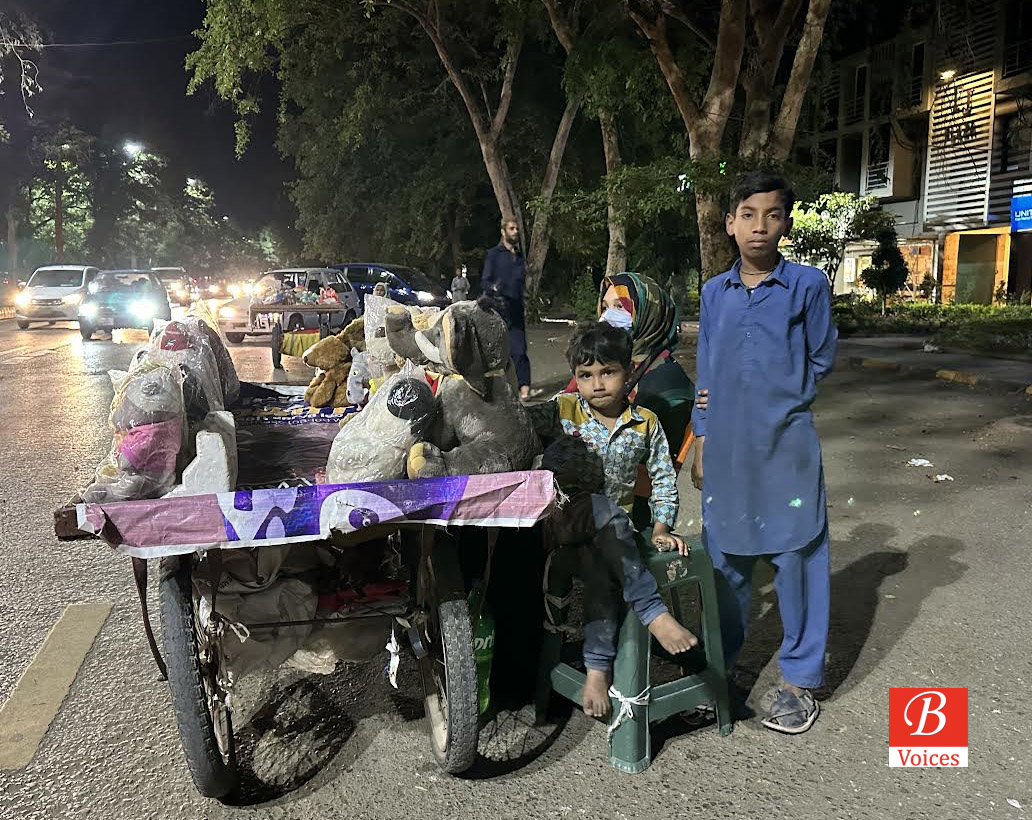
During a recent encounter, I had the privilege of speaking with Kanwal, a remarkable 14-year-old girl who has been working as a female street vendor for the past three years to support her family. Tragically, she was compelled to take on this responsibility after her father’s untimely passing, as she recognized the urgent need to assist her mother financially. Kanwal’s determination to contribute to her family’s welfare led her to forego her education due to financial constraints and limited opportunities. Despite these hardships, she shared a heartwarming strategy employed by her and her mother: they operate separate stalls, ensuring that if one stall does not yield profits on a given day, the other is likely to succeed. This resilient and resourceful young girl’s story serves as a testament to her unwavering strength in the face of adversity, as she selflessly works alongside her mother and cares for her two younger brothers.
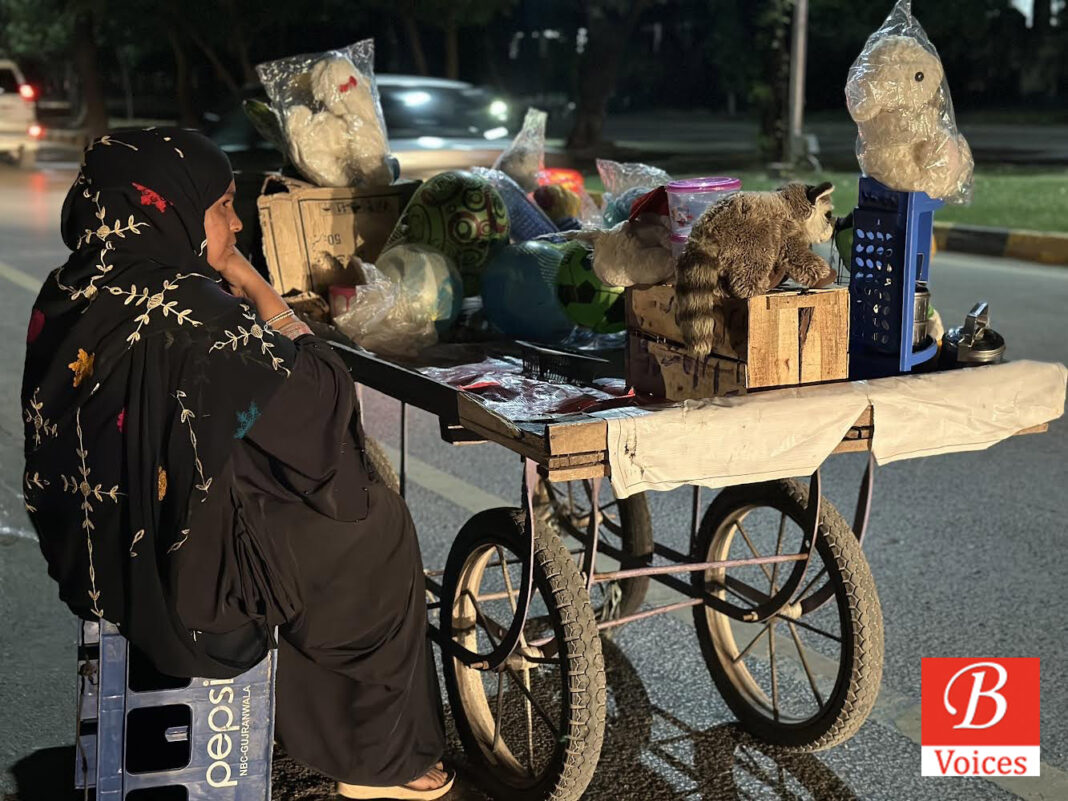
Nargis, a strong and determined mother of three children, is 30 years old and has been working as a female street vendor for the past four years. She came from Ziya Masjid to the main city of Islamabad. Initially, she was the sole provider for her family, but now her daughter Kanwal has joined her, offering much-needed assistance. Nargis takes her children with her to work because they would otherwise be alone at home, and unfortunately, they cannot attend school due to financial constraints. The money Nargis earns from her work is barely enough to cover their rent and put food on the table. Consequently, they are unable to afford the demands of the Capital Development Authority (CDA), which is why they avoid operating during the daytime. The CDA imposes fines ranging from 5000 to 7000 rupees to reclaim their stalls, an amount that is simply beyond their means. Despite these challenges, Nargis’s determination to provide for her children and secure a better future for them shines through in her unwavering efforts as a street vendor.
The stories of female street vendors in Pakistan reveal a multi-generational journey where street vending has become ingrained in their culture and family business. Through interviews, it becomes evident that many of these women have been involved in street vending for numerous years, working alongside their mothers, daughters, and even young children. Take, for instance, the inspiring tale of an elderly lady who has dedicated 29 years to this trade, with her two daughters joining her for the past nine years. Similarly, Nargis, a mother who started street vending four years ago, witnessed her daughter Kanwals taking up the same occupation three years ago. This pattern continues as the torch is passed down to younger siblings and family members. For these women, street vending has become an essential and reliable source of income. However, in this process, the concept of education seems to fade away, as their primary focus shifts toward working and supporting their families. It is crucial to acknowledge the challenges that arise from this dynamic and strive to find a balance that allows for both economic stability through street vending and educational opportunities for their children.
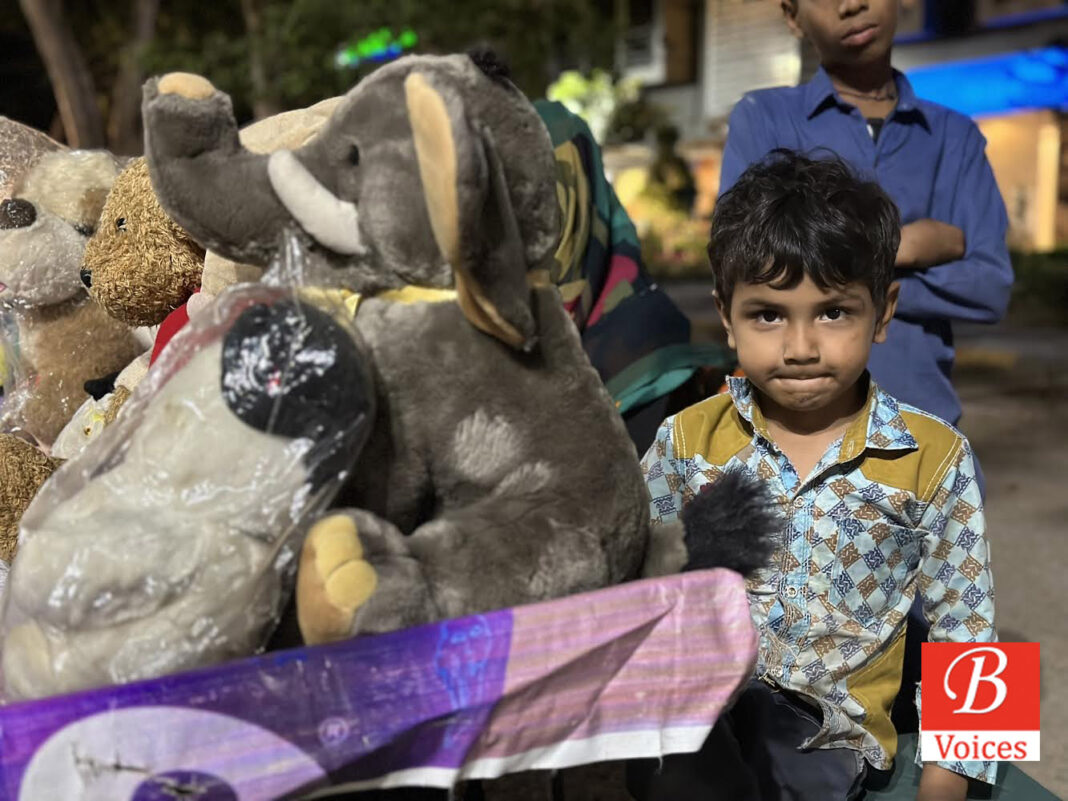
For female street vendors in Pakistan, the streets they traverse each day are not only their place of work but also a constant source of vulnerability. Striving to earn a livelihood, they navigate crowded alleys, unlit corners, and unpredictable situations, often facing harassment, theft, and even assault. The lack of security measures and the absence of a reliable support system exacerbate their risks, making it imperative for us to address their safety concerns.
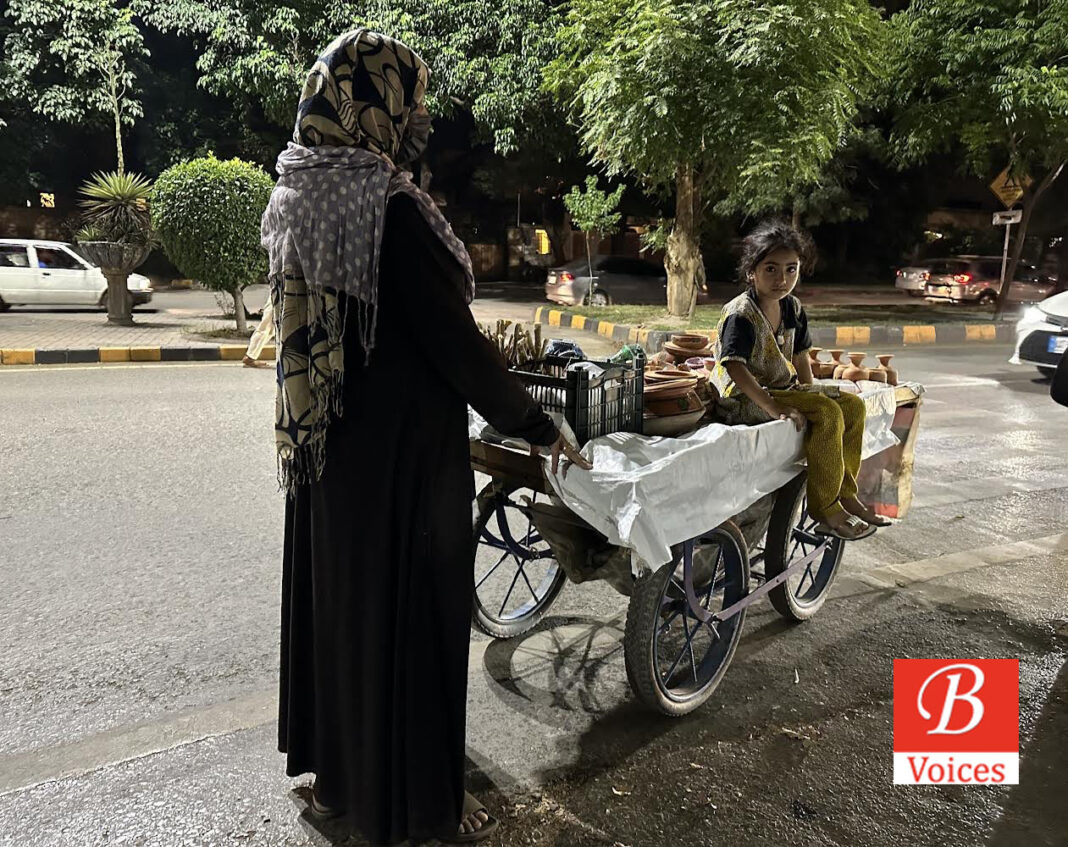
While it is admirable that women in Pakistan support their families through street vending, we must consider the long-term effects. Street vending often becomes a cultural and family business, with children joining their mothers on the streets to help out. Unfortunately, this means the children miss out on formal education and face the challenges of poverty from a young age. Female street vendors not only struggle to make ends meet but also bear the responsibility of securing their children’s futures. Limited financial resources and opportunities deny these children access to education, perpetuating a cycle of limited opportunities and hindering their prospects. This cycle reinforces street vending as a cultural norm, impacting the literacy rate and contributing to the marginalization of female street vendors and their limited social mobility. Breaking this cycle by providing educational opportunities is essential for empowering these women and creating a brighter future for the next generation in Pakistan.
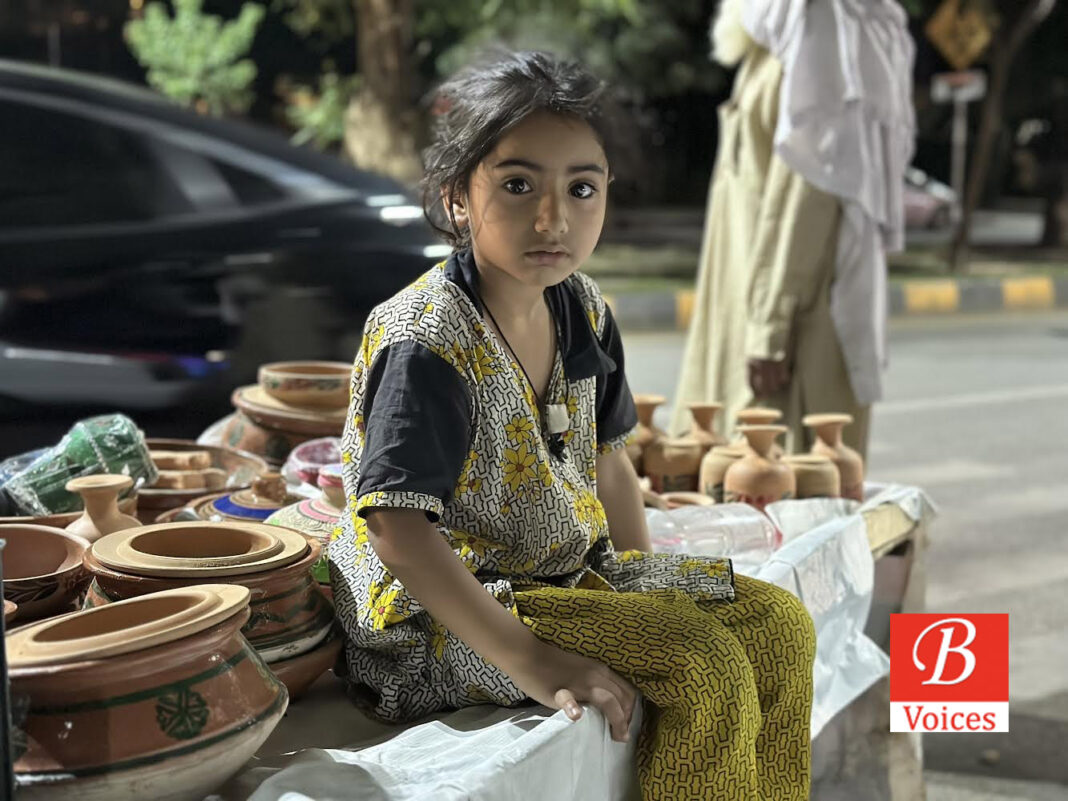
To support female street vendors in Pakistan and ensure a better future for the next generation, a comprehensive law can be introduced. This law would focus on two important areas: security and education. Firstly, it would require the creation of safe vending zones with proper lighting, surveillance, and nearby police presence. Training programs would also be provided to educate women about self-defense and their rights. Secondly, the law would emphasize the importance of education by ensuring accessible and affordable schooling for the children of street vendors near the vending areas. This would break the cycle of limited opportunities and poverty. Collaborations among government, NGOs, and communities would be encouraged to offer additional support like scholarships, mentoring, and vocational training. This law would empower female street vendors, promote inclusivity, and contribute to a brighter future for Pakistan.
The writer is a Mass Communication student specializing in journalism and aims to support women’s empowerment in Pakistan. Using her love for storytelling, she wants to showcase the strength and resilience of women in her community, contributing to positive change
Disclaimer: Views expressed in this article are those of the writer and Balochistan Voices does not necessarily agree with them.
Share your comments!


